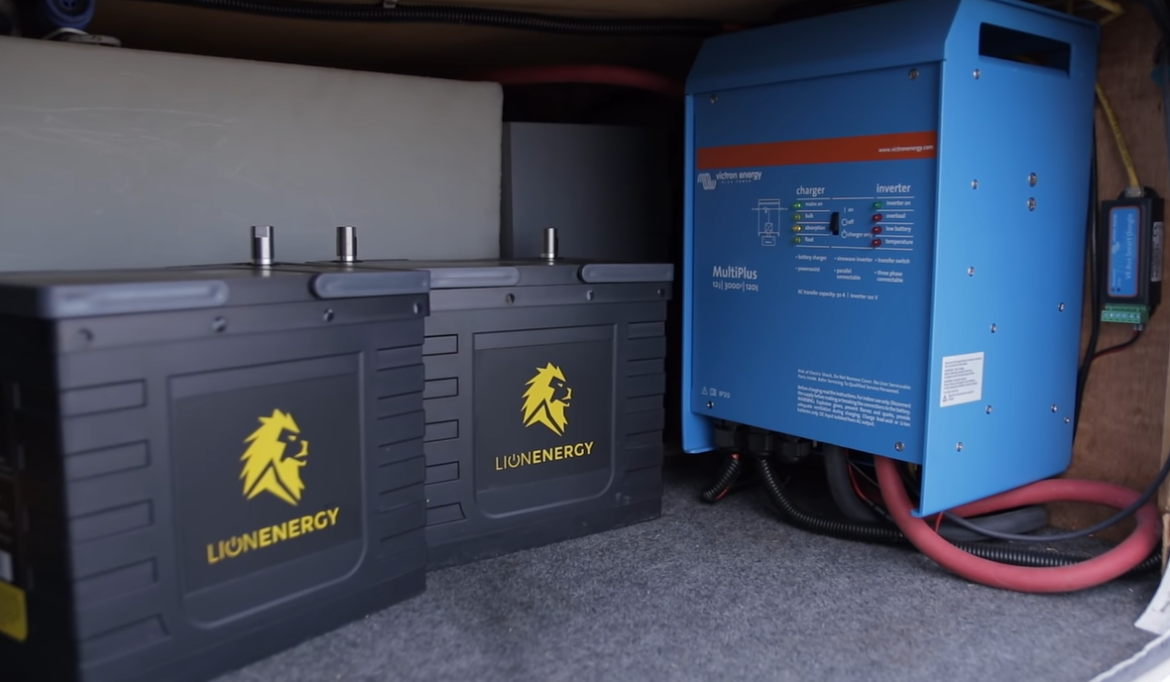
When it comes to RVing off-grid, having a reliable power source is crucial. One of the main power sources for RVs is the battery system, which can be used to power lights, appliances, and other electrical components. But how long do RV batteries last, and what factors can affect their lifespan? In this article, we’ll answer those questions and provide some tips for extending the life of your RV battery.
How Long Do RV Batteries Last?
The lifespan of an RV battery can vary depending on several factors, including the type of battery, how it’s used, and how well it’s maintained. Generally, most RV batteries will last between three and five years before they need to be replaced.
There are three main types of batteries used in RVs: flooded lead-acid batteries, absorbed glass mat (AGM) batteries, and lithium-ion batteries. Flooded lead-acid batteries are the most common type of RV battery and are typically the least expensive. However, they require regular maintenance, including adding water to the cells and checking the charge level.
AGM batteries are a newer type of battery that requires less maintenance than flooded lead-acid batteries. They are sealed and don’t require adding water, and they hold a charge longer than flooded lead-acid batteries. However, they are typically more expensive than flooded lead-acid batteries.
Lithium-ion batteries are the newest type of RV battery and are becoming more popular due to their long lifespan and fast charging capabilities. They are also lighter and more compact than other types of batteries. However, they are typically the most expensive option.
Factors That Affect RV Battery Lifespan
- Usage: The more you use your RV battery, the faster it will wear out. If you’re using your battery to power a lot of appliances, lights, and other electrical components, it will wear out faster than if you’re only using it for a few lights.
- Temperature: Extreme temperatures can affect the lifespan of your RV battery. High temperatures can cause the battery to overheat and wear out faster, while cold temperatures can reduce the battery’s capacity.
- Charging: Properly charging your RV battery is important for extending its lifespan. Overcharging or undercharging can cause damage to the battery and reduce its lifespan.
- Maintenance: Regular maintenance, including checking the water level (for flooded lead-acid batteries), cleaning the terminals, and keeping the battery charged, can help extend the life of your RV battery.
Tips for Extending Your RV Battery Life
- Use LED Lights: LED lights are more energy-efficient than traditional incandescent bulbs and can help extend the life of your RV battery.
- Reduce Energy Consumption: Turn off lights and appliances when they’re not in use to reduce the amount of energy your RV battery needs to provide.
- Use Solar Panels: Solar panels can help keep your RV battery charged and reduce the strain on the battery.
- Charge Your Battery Properly: Make sure you’re properly charging your RV battery by using a charger designed for your specific type of battery and following the manufacturer’s recommendations.
- Monitor Battery Levels: Keep an eye on your battery levels and recharge your battery before it gets too low. This will help prevent damage to the battery and ensure that it lasts as long as possible.
- Avoid Overloading: Don’t overload your RV battery by trying to power too many appliances or electrical components. This can cause damage to the battery and reduce its lifespan.
- Regular Maintenance: Regularly inspect and maintain your RV battery, including cleaning the terminals, checking the water level (for flooded lead-acid batteries), and keeping it charged.
The lifespan of an RV battery can vary depending on several factors, including the type of battery, usage, temperature, charging, and maintenance. Most RV batteries will last between three and five years before they need to be replaced, but proper maintenance and care can help extend their lifespan. By using LED lights, reducing energy consumption, using solar panels, charging your battery properly, monitoring battery levels, avoiding overloading, and performing regular maintenance, you can help ensure that your RV battery lasts as long as possible.